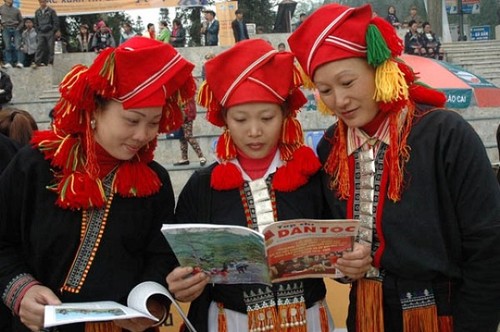 (illustrative photo) (illustrative photo) |
Vietnam has 53 ethnic groups with about 14 million people living in 51 provinces and cities, mostly in the northwest, Central Highlands, southwest, and central coast. Ethnic minority people live mostly in remote areas which have a strategic importance for national defense.
Priorities for socio-economic development in ethnic areas
Vietnam’s laws and policies supporting socio-economic development in ethnic areas are constantly being refined. Since 2016, the Vietnamese government has issued 41 documents for ethnic areas and ethnic groups. Vietnam now has 54 policies for socio-economic development in ethnic areas.
Socio-economic infrastructure in ethnic areas has been upgraded. 100% of communes have car accessible roads. 99% of commune centers and 80% of hamlets have electricity. 50% of communes have clinics. Household poverty in ethnic areas fell 3.5% per year from 2016 to 2018.
Phan Van Hung, Vice Chairman of the Committee for Ethnic Affairs, described an international cooperation program for socio-economic development in ethnic areas: “In 5 years, we have seen impressive results. We have drawn NGOs to invest in poverty reduction, production, healthcare, education, and job generation. The projects have made big changes in many localities. With foreign resources, the government budget, and local efforts, we have recorded impressive results.”
Equality promoted among ethnic groups
The Master Plan on socio-economic development in ethnic areas sets targets for housing and production land, fresh water supply, residential planning, and agri-forestry, promotes local potential and advantages, invests in infrastructure, improves human resource quality, and preserves and promotes ethnic culture and tourism.
Trieu The Hung, a National Assembly deputy for Lam Dong province, said: "In addition to economic development, the Master Plan addresses cultural and educational issues. It can be carried out sustainably in ethnic areas. Its main focuses are human rights under the 2013 Constitution, economic development, national defense, and order in border and mountain areas.”
The Master Plan targets an 80% reduction of poor households by 2030 and improved infrastructure in 85% of ethnic communes. It also aims to ensure equal development among ethnic groups and fulfill the UN’s Sustainable Development Goal of “no one left behind”.